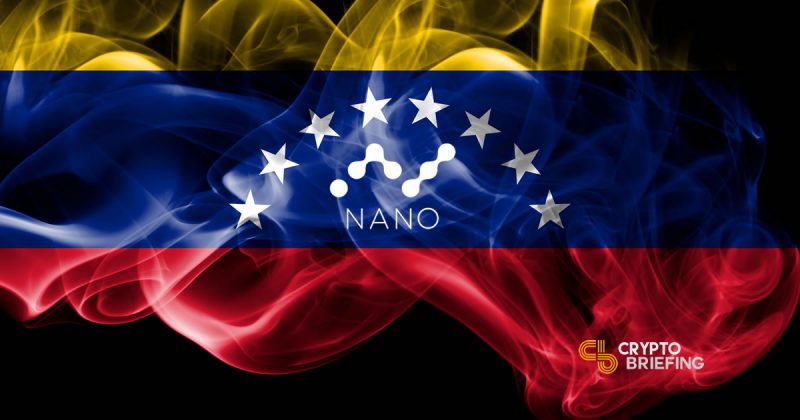
Venezuela Crypto Charity Demonstrates Another Use Case
Markets may be red, but there’s plenty of heartwarming news in the cryptoverse.
Markets may be red, but there’s plenty of heartwarming news in the cryptoverse. Currently making the rounds is the story of how Nano, one of the smallest and least-noticed currencies, is making a small but measurable impact on the lives of ordinary people in Venezuela.
The story started circulating on Reddit, where a Venezuelan user thanked the Nano community for the donation of 0.5 NANO—only about $1.80, but “almost one entire monthly salary” in the malnourished country. As is customary on Reddit, the donations snowballed, and the user soon replied with grateful photos of 102 kilograms of food, purchased with Nano donations.
The story reawakened a dormant discussion in the Nano community about using the currency to help ordinary Venezuelan families. Because Nano requires no intermediaries or fees, it’s an ideal medium for low-value transactions.
posted a photo of 102 kg. of food purchased with a Nano donation.
The story has since been picked up and reprinted—with some dramatic embellishments—in news sites like Bitcoin Magazine, Yahoo! Finance, and Nasdaq.com
Since then, other crypto-communities have started following suit. EatBCH, an online initiative by the Bitcoin Cash community, received 150 donations since the Nano story started to spread.
Largely organized on Twitter, the penny-sized donations in BCH have made a small but measurable impact in the lives of local Venezuelans. Started in February, the donation address has collected over 21 Bitcoin Cash, not a satoshi of which has gone into the pockets of banks, middlemen or politicians.
Formerly one of the most resource-rich countries in the hemisphere, the value of the Venezuelan Bolivar has been inflated away by five years of irresponsible economic policy. The “Maduro diet,” referring to the president’s policy of rationed distributions, has caused the average Venezuelan to lose over 25 pounds.
A New Model for Developmental Aid?
The idea was quickly picked up, and not just in the crypto bubble. Moss Reindon, an associate director at the Center for Strategic and International Studies, wrote strongly in favor of crypto-donations as a means of aiding people under hostile regimes:
For example, the use of cryptocurrency to safely transfer worldwide donations, following a model like EatBCH, is a novel approach already creating a positive impact for Venezuelans on the ground today. More peer-to-peer electronic cash transfers should be encouraged to assist with humanitarian aid from abroad.
There’s nothing new about crypto-cheerleading, but it’s hardly expected from a Washington think tank. On a larger scale, digital currency could become a new model for charitable giving.
Most charities find it easier to raise money than to spend it. Transaction costs, like shipping, and corrupt officialdom often make international aid difficult to distribute effectively.
Moreover, established charities—think of every Children’s Fund commercial you’ve seen—can sometimes do more harm than good, by distorting markets, propping up potentates and erecting useless infrastructure.
Cryptocurrency airdrops, on the other hand, represent a viable, low-cost method of getting value to communities that need it—no guilt involved.
The author has investments in Nano and Bitcoin Cash, two currencies mentioned in this article.
